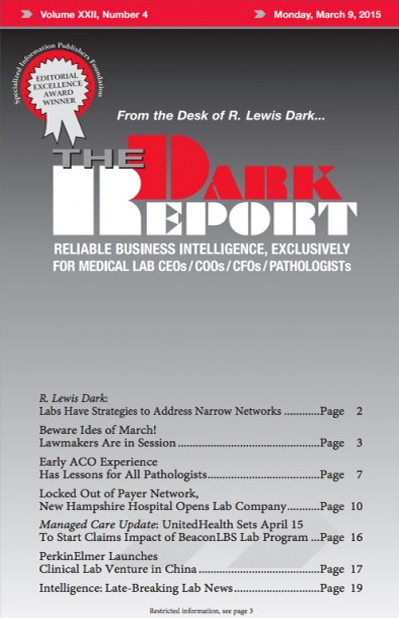CEO SUMMARY: Since Anthem launched its site of service program in New Hampshire in 2010, labs in the state’s hospitals have mostly been excluded from its network and have lost market share. Recently one community hospital developed an unusual strategy to win back those patients. Last year, Frisbie Memorial Hospital in Rochester, opened a stand-alone independent lab company that became a provider in the Anthem network. To date, the independent lab has been gaining patients steadily, hospital officials say.
To access this post, you must purchase The Dark Report.


